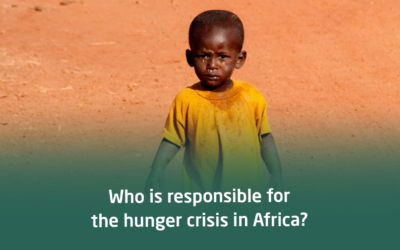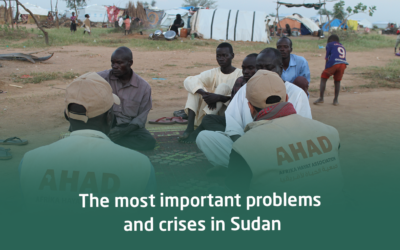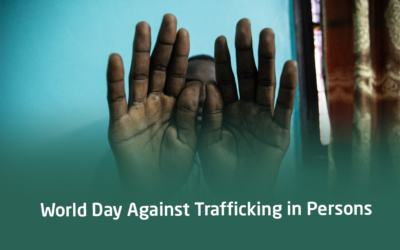Sudan’s children face poverty and disease
Children in Sudan face a bitter reality of poverty and disease, which hinders the realization of their dreams and negatively affects the future of the country. Sudan is suffering from successive economic and political crises, which particularly affect children, who represent the most vulnerable segment of society. These children are exposed to a range of challenges that include lack of food, healthcare and education, making their daily lives a constant battle for survival and growth. Addressing these challenges requires a comprehensive approach that includes cooperation between the government, the international community and civil society.
Sudanese children live in harsh conditions as a result of many interrelated factors. Chronic political crises and frequent civil wars have led to instability and a lack of basic services. The deteriorating economic situation contributes significantly to the increase in poverty rates, as many families find it difficult to secure their basic needs for food, health, and education.
In these difficult conditions, children become the most affected category. Poverty prevents many children from getting adequate and balanced food, which leads to malnutrition that impairs their development and makes them vulnerable to diseases. The deteriorating health system also lacks the capacity to provide the necessary health care to children, which increases their mortality rates as a result of preventable diseases.
On the other hand, education is one of the most important means by which to improve the future of children, however, poverty and insecurity hinder the access of many children to schools. Many of them are forced to work to help their families, which deprives them of educational opportunities and limits their future possibilities. Armed conflicts also lead to the destruction of schools and educational infrastructure, which makes it more difficult to obtain education.
To meet these challenges, intensive cooperation between various stakeholders is required. The Sudanese government, with the support of the international community, should develop effective policies to alleviate poverty and improve health care and education. Civil society also plays a vital role in providing direct support to families and children through nutrition, health, and education programs. Cooperation between these parties can contribute to creating a better environment for Sudanese children, where they can grow, learn and thrive.
Improving the situation of children in Sudan requires integrated and comprehensive efforts that include all aspects of their lives. Through effective cooperation between the government, the international community and civil society, it is possible to provide the necessary support to children so that they can realize their dreams and contribute to building a better future for Sudan.
Poverty and its impact on children in Sudan
Food shortages and malnutrition
Poverty is one of the most prominent challenges facing children in Sudan, where about 47% of the population lives below the poverty line. Children in Sudan are experiencing an acute shortage of food, which leads to malnutrition. The United Nations Children’s fund (UNICEF) estimates that about 2.7 million Sudanese children are acutely malnourished. Malnutrition leads to impaired physical and mental development of children, increased mortality rates among them. Malnutrition also affects their ability to learn and concentrate at school, limiting their future possibilities.
Education and future opportunities
Poverty greatly affects the educational opportunities of children in Sudan. Many children are forced to work at an early age to help their family with their basic needs, which deprives them of access to education. UNICEF estimates that about 3 million Sudanese children are not attending school. The lack of education leads to a cycle of persistent poverty, as new generations remain trapped in the same difficult economic conditions that their parents experienced. Lack of access to quality education means the loss of opportunities to improve economic and social life.
Disease and health care for children in Sudan
Spread of diseases
Children in Sudan face significant health threats as a result of the spread of diseases such as malaria, measles, and cholera. Difficult living conditions, lack of clean water and malnutrition increase the vulnerability of children to diseases. According to the World Health Organization, malaria is one of the biggest causes of death among children in Sudan. This problem is exacerbated by a lack of health awareness and a weak health system, which leads to the rapid spread of diseases and an increase in infection rates.
Lack of health care
Sudan suffers from an acute shortage of Health Services, which greatly affects the health of children. Hospitals and health centers lack medical equipment, medicines and qualified personnel. This shortage leads to the fact that children do not receive the necessary health care, which increases mortality rates among them. In addition, pregnant women suffer from a lack of medical care during pregnancy and childbirth, which increases maternal and newborn mortality rates. UNICEF estimates that about 12% of Sudanese children die before reaching the age of five, one of the highest rates in the world.
Efforts to meet the challenges
Governmental and international initiatives
The Sudanese government, in cooperation with international organizations, is working to implement programs aimed at improving the situation of children in Sudan. These programs include providing food assistance, improving health care services, and enhancing educational opportunities. For example, UNICEF and the World Food Program run nutrition programs targeting children, pregnant and lactating mothers to improve nutritional status and reduce malnutrition rates. These initiatives also seek to improve the quality of education and provide financial support to poor families to enable their children to attend school.
The role of civil society
Civil society plays a vital role in supporting children in Sudan. Many local and international NGOs are working to provide the necessary support to children through education, health care and nutrition programs. These organizations seek to raise awareness about children’s rights and the importance of providing a safe and healthy environment for their development. Some organizations organize large-scale vaccination campaigns to reduce the spread of infectious diseases, provide free health services in rural and remote areas. It also contributes to providing psychological and social support to children suffering from trauma as a result of conflicts or extreme poverty.
Children in Sudan face serious challenges from poverty and disease, hindering their chances of a healthy and prosperous life. Meeting these challenges requires concerted efforts by the government, the international community and non-governmental organizations to ensure that children’s basic needs are met and their quality of life improved. By focusing on education, health care, and nutrition, Sudan can make tangible progress in improving the future of its children and ensuring that they enjoy a dignified and secure life. Investing in children is an investment in the future of the country, as they represent the hope of building a prosperous and stable Sudan. It is necessary to adopt comprehensive and sustainable strategies to meet current challenges and ensure children’s rights to a better life.
You can visit the AHAD website to find out more about the projects it offers
ALSO READ
WHAT THE FOOD BASKET CONTAINS IN AHAD
Join us in our message






